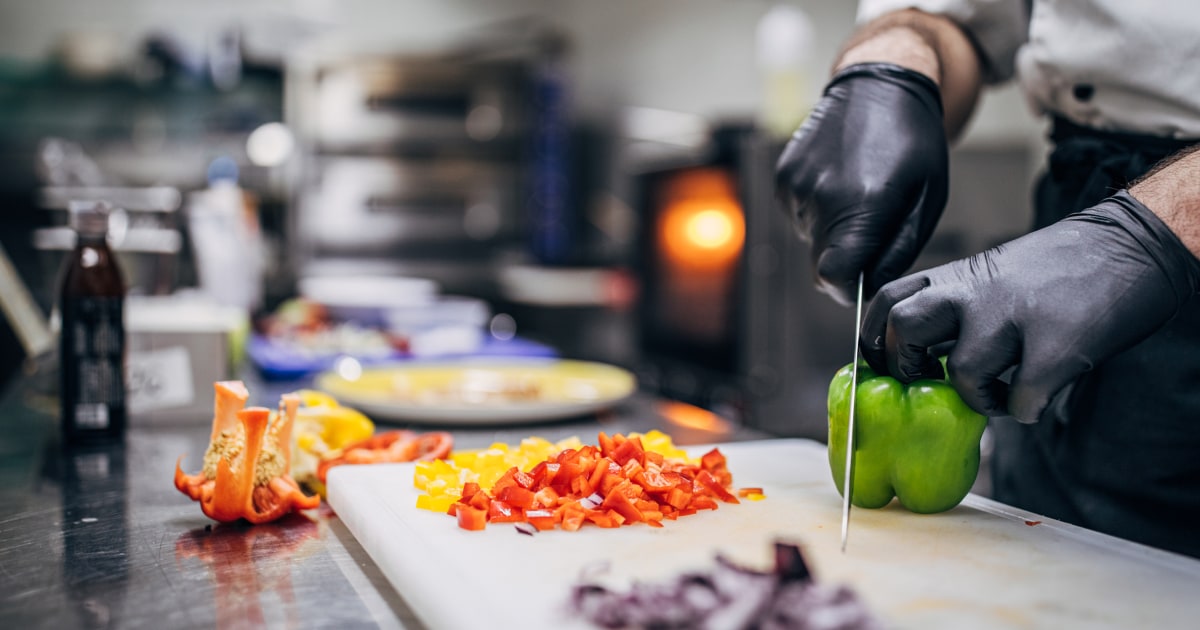
Sick employees are major contributors to the spread of foodborne illnesses at restaurants and other food establishments, according to a Centers for Disease Control and Prevention report released Tuesday.
From 2017 to 2019, the report found, around 40% of foodborne illness outbreaks with known causes were at least partly associated with food contamination by a sick or infectious worker. In 2017, for instance, Chipotle attributed a norovirus outbreak at its restaurant in Sterling, Virginia to an employee who came to work while ill.
Norovirus, a stomach bug that causes vomiting and diarrhea, was the most common pathogen involved in foodborne illness outbreaks at U.S. restaurants during the years studied, according to the report. It accounted for 47% of the 800 outbreaks that the CDC identified. Salmonella — a bacteria that causes diarrhea, fever and stomach cramps — accounted for nearly 19%.
The report recommended that restaurants develop and enforce policies that require sick workers to notify their manager if they have symptoms and to stay home if they’re ill.
“Ill workers continue to play a substantial role in retail food establishment outbreaks, and comprehensive ill worker policies will likely be necessary to mitigate this public health problem,” the report’s authors wrote.
While most restaurants have at least some guidelines for sick workers, the CDC found that the policies are often incomplete.
Around 92% of the managers the CDC interviewed said their establishment had a policy requiring food workers to report symptoms if they feel sick, but just 66% said those policies were written. And just 23% said their restaurant’s policy listed all five of the symptoms that guidelines from the Food and Drug Administration suggest warrant notifying a manager: vomiting, diarrhea, jaundice, sore throat with fever or a lesion with pus.
More than 85% of the managers surveyed said their establishment had a policy that prevented sick employees from working, but just 62% of managers said the policy was written and 18% said their policy listed all five symptoms outlined by the FDA.
“It’s not just about a sick employee. It’s about when you have managers and district managers and store managers, et cetera, that aren’t following health department guidelines,” said Darin Detwiler, a food regulatory policy professor at Northeastern University, who wasn’t involved in the research.
Detwiler said better paid sick leave policies — either mandated at the state level or instituted by individual companies — would make it easier to stop outbreaks. Some past research backs that up: A 2021 study, for instance, determined that Olive Garden’s decision to expand paid sick leave coverage during the pandemic reduced the rate of front-line food service employees working while sick.
The CDC report, however, found that fewer than half of food establishments with outbreaks provided paid sick leave to at least one food worker. Fourteen states and Washington, D.C. have paid sick leave laws, according to the Center for American Progress, a liberal-leaning think tank.
“If companies value their employees’ health and their customers’ health, then they would not be responding reactively to these things,” Detwiler said. “They would be taking proactive steps to prevent these things from happening.”
Foodborne diseases cause around 48 million illnesses and 3,000 deaths each year in the U.S. According to Detwiler, most of those deaths could be prevented.






